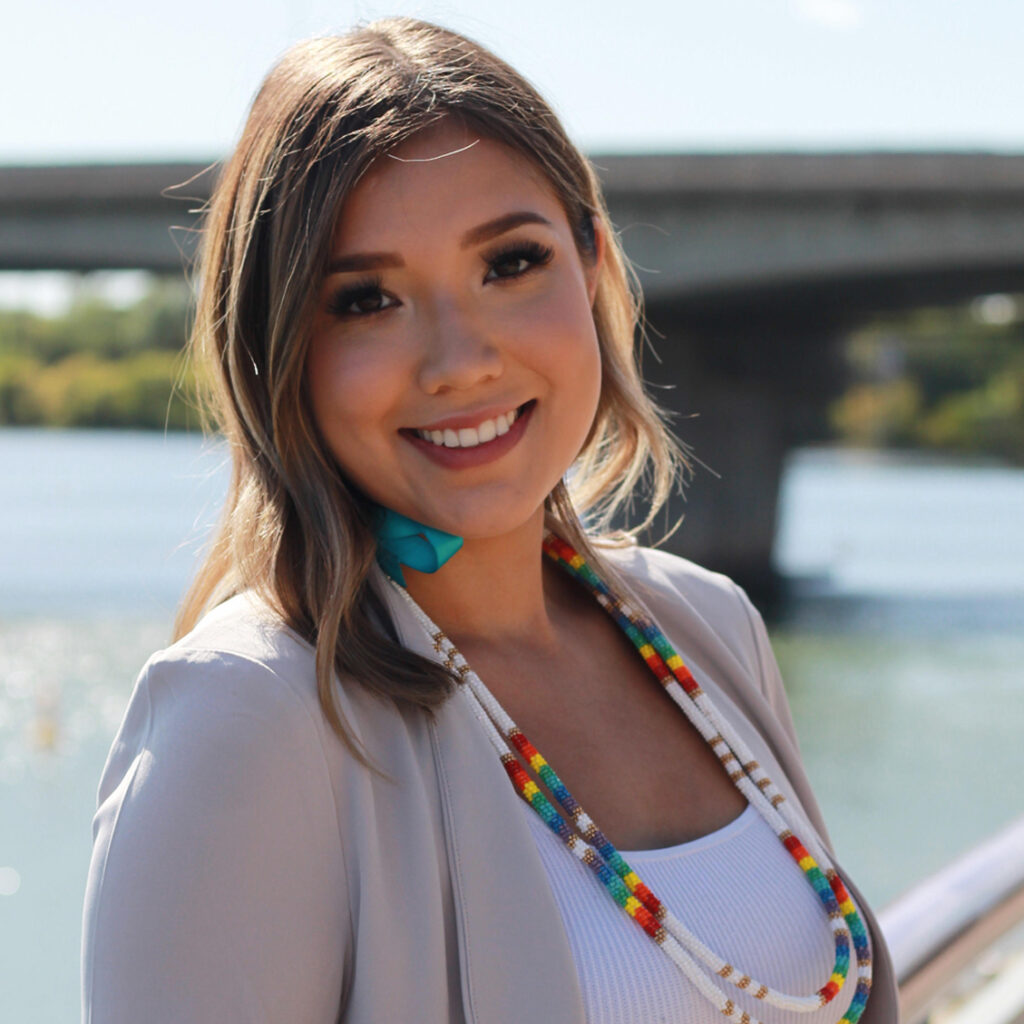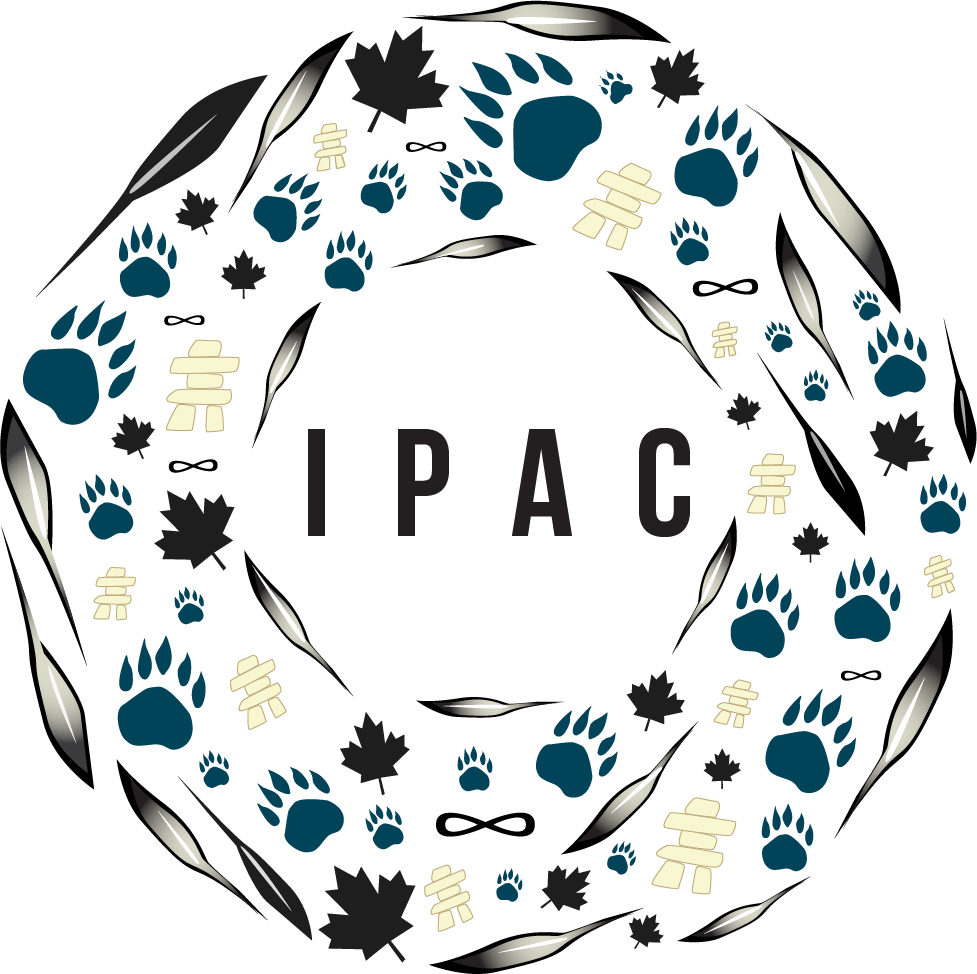RECOGNIZING EXCELLENCE JESSICA MIRASTY

Jessica Mirasty
Firstly introduce yourself and tell us where your home place is. Describe your job/jobs in just under four sentences. Please also provide your title and profession.
Jessica Mirasty is a member of Flying Dust First Nation and also has connections to Canoe Lake Cree Nation in Northwest Saskatchewan.
Jessica is a 3rd year Bachelor of Commerce student at the U of S. During her time at the U of S, she has had the opportunity to co-found the Indigenous Business Students’ Society (IBSS), participate in the Co-op program, and be an active member in the Indigenous campus community. Currently, she is the Social Action Director under the Students Supports portfolio for the IBSS. Outside of school, Jessica currently sits on a Board of Directors role with an Indigenous non-for-profit organization Focus Forward and is a Youth Advocate for Reconciliation Saskatoon.
What sparked your interest to work in this industry?
Growing up, I was always interested in economic development in First Nation communities because I saw the gaps in community programs on reserve and the systematic racism that prevents Indigenous people from accessing essential resources.
I learned that self-government is critical for economic development and that First Nation’s can establish their own businesses either on reserve or on urban reserve land. I am always interested in learning ways to support Indigenous owned businesses and the different ways to finance community programs. According to the Indigenous Economic Reconciliation Report (2019), closing the gaps between Indigenous and non-Indigenous Canadians would boost Canada’s economy by $27.7 billion annually. This is a significant number and why it is so important to support other Indigenous businesses, and to be an ally for them.
What do you enjoy most about your profession?
Choosing the business route, I enjoy that the B.Com is a practical degree because you can work in any industry you want. There is always going to be a need for business-related jobs. I quickly learned that I enjoy looking for ways to support Indigenous people, whether in their communities, in school, or at the corporate level.
What educational preparation would you recommend for someone who wants to advance in this field?
I would recommend someone first to research and find what business school interests you, look at the different majors, and then reach out to a mentor that can guide you on what to expect.
Once you begin school you should start doing summer internships, apply to the Co-op program, attend networking events, and start volunteering at either an organization or student club! Your network will grow once you start doing at least one of these activities, and you will be surprised what type of connections you can make that can eventually land you a job after grad. It may seem daunting to put yourself out there but remember that you will only gain experience if you try new things so don’t be afraid to reach out and ask for help from other students or mentors.
What does success look like to you for Indigenous youth?
What Indigenous youth success looks like to me comes from within yourself. The first step is to start taking care of yourself; show your mind, body, and spirit the love it needs. When you start taking care of yourself, it will show in the work that you do. This is success!
How has a failure, or apparent failure, set you up for later success?
Failure has allowed me to reflect and grow as I realized I could not look back on the past and let it affect me. From then, I learned to appreciate the failure I went through to understand what areas I lacked in. My advice is to continue to allow yourself to make mistakes, and this will set you up for success because you begin to change your daily habits, and you learn to be persistent with your goals.
What are one to three books that have greatly influenced your life?
The top book that has greatly influenced my life would be the biography “Becoming” by Michelle Obama. I finished this book about a month ago and cannot say good enough things about it! Michelle Obama talks about growing up poor, experiencing racism, having a disabled dad, feminism and fighting for social issues as the First Lady. I was so moved and inspired by her book; it taught me to stay true to my roots and fight for what I believe in. One of her famous quotes from the book, “If you don’t get out there and define yourself, you’ll be quickly and inaccurately defined by others.”
Do you volunteer? If so, where and why is that important to you?
I currently volunteer for the Indigenous Business Students’ Society (IBSS) and a Not-for-profit Indigenous organization, Focus Forward.
Volunteering is important because I have been in a position where I felt detached from my culture during my first two years of university studies from being away from my reserve. Rather than dwell on the negative thoughts and feelings, I decided to “Struggle and Emerge,” and I co-founded the IBSS in October 2018 with Aubrey Pewap. Volunteering in the Indigenous community eventually led to various other volunteer opportunities that I began to take as hobbies and something that I love to do in my free time. I learned it is crucial to develop the mindset of “Being a servant to others,” you become moved by what people are willing to accomplish as a team for the greater good.
In the last year, what new belief, behavior, or habit has most improved your life?
Reflecting on the past year, I have been able to project a perspective that has enabled me to take on new challenges, chase opportunities that once scared me, and overall, achieve success that I only thought about. Experiencing the impacts of a global pandemic have enabled me to truly believe that life is uncertain. As a result, I approach any opportunity that involves growth and maximize the idea of success. Gradually developing this mindset has surpassed my goals and allows me to aim for higher.
What are some challenges you think the next Indigenous generation will face in your industry/profession?
Considering that we are moving closer to digital and remote work, the Indigenous generation can expect to experience a decline in job opportunities relative to increased job automation. This impacts the next Indigenous generation by competing for domestic or abroad opportunities that are competitively weeded out compared to demographics of more opportunity and advantages.
According to the Indigenous Economic Reconciliation Report, an analysis of 2016 census data revealed that Indigenous peoples are under-represented in the highest-paying occupations and overrepresented in the lowest-paying occupations despite strong representation in high paying industries (2019.) As a result, there are essential changes that need to be addressed and implemented for the next generation to narrow this socio-economic gap.
What advice would you give to a smart, driven student about to enter the “real world”? What advice should they ignore?
The advice I would give is to be a good person, be kind, and humble yourself. There will always be someone better at something than you are, and that’s okay! Don’t be focused on comparing yourself to others. Instead, stay true to your roots, be uniquely you and opportunities will come your way. Sometimes, you may be the only Indigenous student in class, at work, or at other events; Wear that on your sleeve and be proud of who you are. Be in the mindset to be a lifelong learner; everyone can teach you something!
They should ignore the advice that they can only do one career for the rest of their life. That is not true; you can expand and do so many different things, don’t be afraid to take risks!

